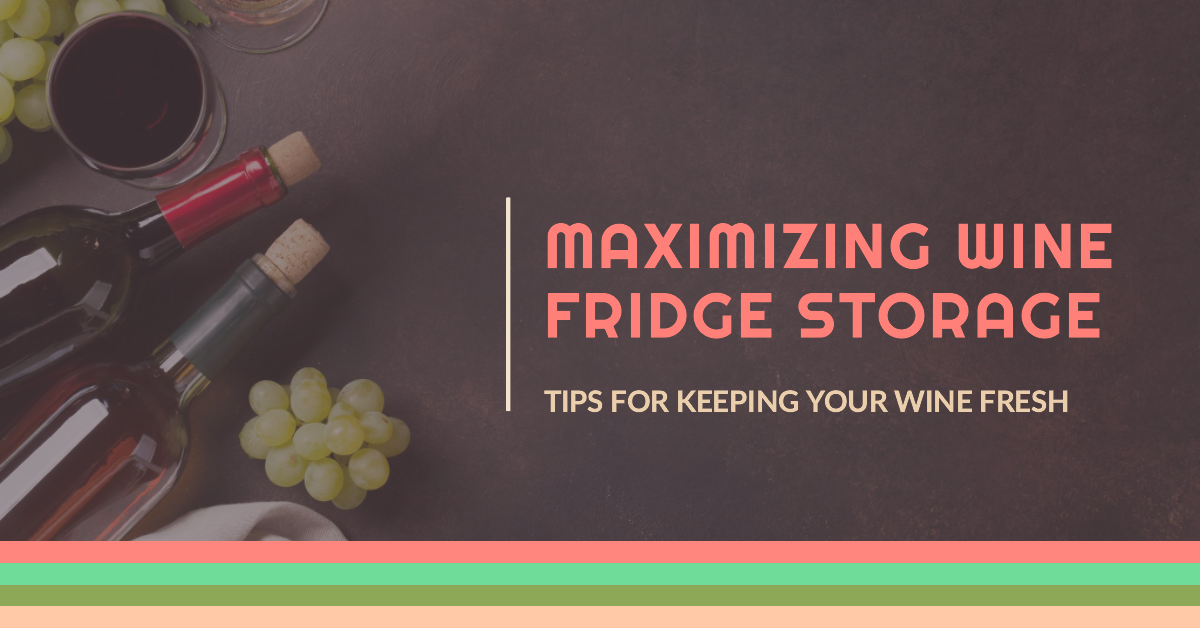This guide explores everything you need to know about storing opened wine in the fridge. From understanding how wine spoils to maximizing its lifespan, this comprehensive resource equips you to enjoy your favourite vintages at their best.
Understanding Wine Spoilage
The primary culprit behind wine spoilage after opening is exposure to oxygen. Oxygen triggers a chemical reaction called oxidation, which breaks down the wine’s delicate flavour compounds. This can lead to unpleasant changes like:
- Vinegar-like aromas
- Dull or muted taste
While less common, improper storage can also allow bacteria and mould to grow in opened wine, rendering it unsafe to drink.
The Fridge Advantage
Here’s why your fridge is your best friend for storing opened wine:
- Slower Oxidation: By lowering the temperature, the fridge reduces the rate of chemical reactions within the wine, including oxidation. This essentially buys you more time to enjoy your opened bottle.
- Limits Microbial Growth: Colder temperatures also inhibit the growth of most bacteria and mould that can spoil wine.
Factors Affecting Storage Time in the Fridge

Several factors influence how long an opened bottle will stay fresh in the fridge:
- Wine Type:
- Red vs. White: Red wines, with their higher tannin content, generally last slightly longer after opening than whites. Tannins act as natural antioxidants, providing some protection against oxidation.
- Light vs. Full-bodied: Lighter-bodied whites and rosés tend to last a bit longer than full-bodied whites. Their delicate flavours are more susceptible to oxidation.
- Closure Type:
- Cork vs. Screw Cap: While not a significant difference, wines with natural corks may form a tighter seal, potentially extending shelf life slightly compared to screw caps. However, proper storage practices are more important than the closure type.
Maximising Fridge Storage for Opened Wine
Here are some key tips to extend the life of your opened wine in the fridge:
- Reseal Properly: Ensure a tight seal with a cork or suitable stopper to minimize air exposure. Invest in good quality stoppers specifically designed for wine bottles.
- Store Upright: Storing bottles upright helps prevent the cork from drying out. A dried-out cork can allow air to enter the bottle and accelerate spoilage.
- Minimize Light Exposure: Light exposure can accelerate wine spoilage. Keep wines in a dark place, including within the fridge.
Alternative Storage Methods
While refrigeration is excellent for opened wine, here are a few alternative methods to consider:
- Wine Preservers: These handy gadgets pump out air from the bottle and replace it with inert gas like argon. This can significantly extend the life of opened wine, sometimes for weeks.
- Smaller Serving Sizes: Consider buying smaller bottles or using portion control devices like wine spouts. This helps you avoid having large quantities of opened wine that might go bad before you can finish them.
Identifying Spoiled Wine
Unfortunately, even with proper storage, sometimes wine can go bad. Here are some telltale signs to watch out for:
- Off-odours: Notice any strong vinegar-like, sour, or musty smells? These are red flags.
- Change in Colour: Some wines may darken slightly with age, but a significant colour change can indicate spoilage.
- Flat Taste: Fresh wine has a vibrant flavour profile. A dull or flat taste suggests the wine has oxidized and is no longer enjoyable.
Troubleshooting Common Fridge Storage Issues
- Fridge Not Cold Enough: Ensure your fridge temperature is set between 50°F (10°C) and 55°F (13°C) for optimal wine storage.
- Musty Odours Developing: Clean your fridge regularly to prevent mould growth. Spills can also contribute to unpleasant odours.
By understanding the science of wine spoilage and following these storage tips, you can significantly extend the lifespan of your opened wines. With a little knowledge and the right approach, you can enjoy your favourite vintages for days, even weeks, after opening.